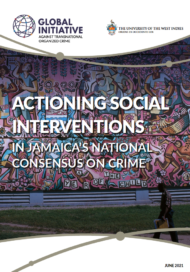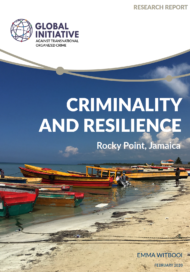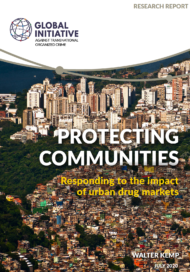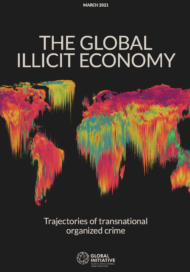Posted on 07 Jun 2021
Since the beginning of the new millennium, successive Jamaican governments – both those formed by the Jamaica Labour Party and the People’s National Party – have devoted considerable political capital and resources to reducing the high and chronic levels of violence and crime in the country.
In October 2019, the government, opposition, civil society and the private sector agreed to develop a National Consensus on Crime to support Jamaica’s transformation into a safe, secure and investment-friendly society that can deliver development to all of its people. The Consensus, signed in August 2020, has brought a spirit of cautious optimism to the discourse, as well as reflecting the recognition that major policy changes needed to be agreed upon by both political parties if implementation is to be sustained over time. But it will be the responsibility of the present government, with the electoral mandate with which it was charged in September 2020, to realize this potential and make tangible the transformation.
Purpose of the paper
The National Consensus on Crime provides a detailed, though not comprehensive, set of actions to implement the priorities and principles it sets out. These are focused predominantly on legislative and criminal-justice reform; meanwhile, however, the broader framework of actions to address the enabling environment and drivers of crime remains undefined.
In addition to the security and justice principles, the Consensus states that ‘priority must be given to social and community programmes’. Here, the specific focus is on six areas:
1. Community regeneration.
2. Reordering gender norms for peaceful coexistence.
3. Paying special attention to at-risk and unattached youth.
4. Ensuring that children attend school and are engaged after school.
5. Providing jobs and opportunities for youth.
6. Embedding policing within the community as the core approach of the JCF.
There is little detail, however, in the document about how these six points will be achieved, and no mention of decisions, priorities or action areas for taking these stated priorities forward. The aim of this paper, therefore, is to offer a response to the Consensus, and to propose a means by which the six priority areas can be actioned.
The paper is intended to provide an initial framework for discussion and debate among interested and concerned Jamaican stakeholders about the six priority areas. It draws on the experience and evidence base for responses to organized crime and gang violence from a global perspective, as well as recommendations from recent studies conducted by regional universities and Caribbean think tanks.
The paper benefits from information provided by two expert-group meetings that were held in November 2020, in which 25 Jamaican and non-Jamaican experts and practitioners reviewed the key findings of the report and offered the additional benefits of their experience. It is structured to:
1. Present the Jamaican experience followed by an international case study in each of the six areas of social intervention prioritized by the Consensus, highlighting key lessons learned from those experiences as well as the expert-group consultations.
2. Consider indicators to measure progress in social interventions.
3. Draw together an easy-to-access set of the 10 overarching principles that
can be used as tools to respond to chronic violence, drawn from the Jamaican context and global best practices.




